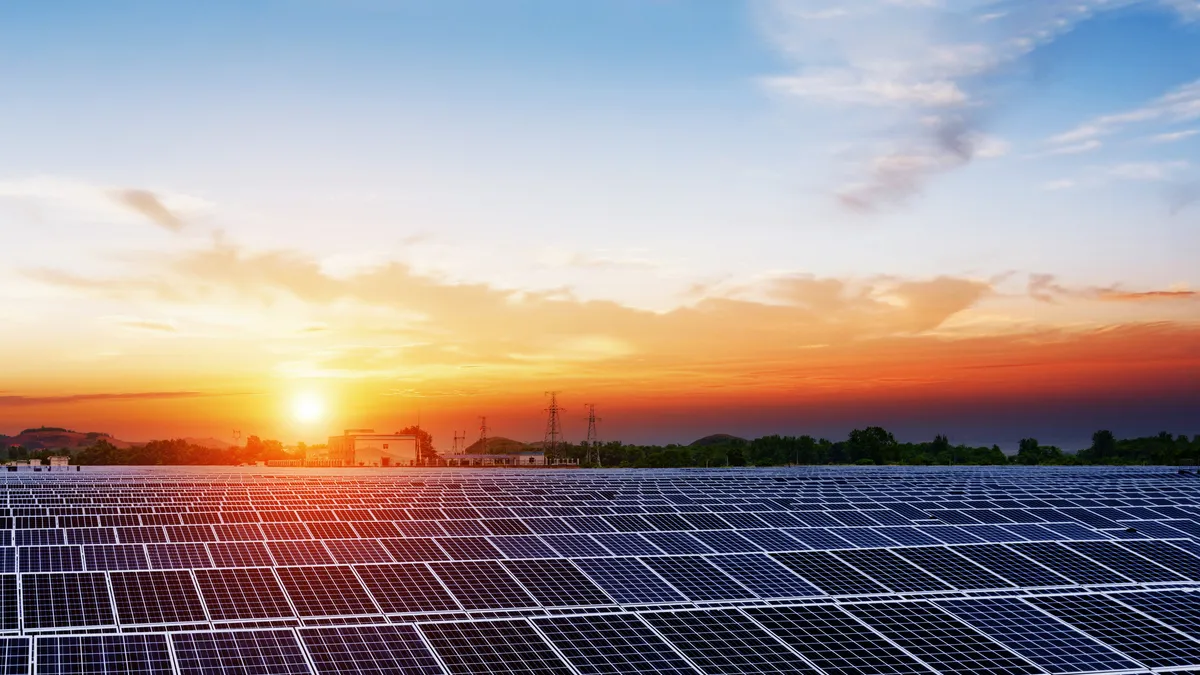Dive Brief:
- The New Jersey Board of Public Utilities (BPU) last Thursday approved rules for a three-year community solar program, the state's first and a key component of Democratic Gov. Phil Murphy's clean energy agenda.
- The pilot will set aside 40% of the overall program's capacity to serve low- and moderate-income customers, to ensure wider access to solar power. The pilot's initial annual capacity is limited at 75 MW for the first year and at least 75 MW each for the second and third years.
- BPU staff developed the pilot, which will inform a permanent program, to be flexible. The application for the program is currently being developed, with regulators expected to consider it at a meeting in the near future.
Dive Insight:
New Jersey, one of the many states advancing toward clean energy goals, is looking to solar initiatives to bring affordable renewable energy to more customers.
The state had more than 100,000 total solar panel installations by the end of 2018, according to the BPU, but encouraging broader access to solar power is key to Murphy's stated goal of 100% clean energy by 2050. Despite initiatives to lower the cost of solar panels in the state, many lower-income residents cannot afford them.
"The point of this pilot program is to take the first step toward ensuring that we change this dynamic," Joseph Fiordaliso, president of the BPU, said in a statement.
Customers will be allowed to sign up for a monthly subscription or to purchase ownership of a share of the community solar program, receiving a credit on their utility bill. The options allow renters to also participate in the pilot.
The program could roughly cover the electric usage of 45,000 residences, according to the BPU. New Jersey has the capacity to serve more than 400,000 subscribers through community solar, GTM Research estimated in a 2018 report.
The state approved a new community solar program in 2018, adding it to a number of states, largely along the coasts, that are enabling the growth of shared solar through policy initiatives.















